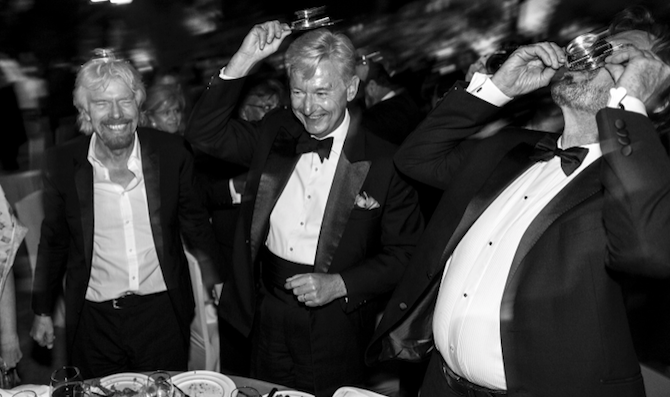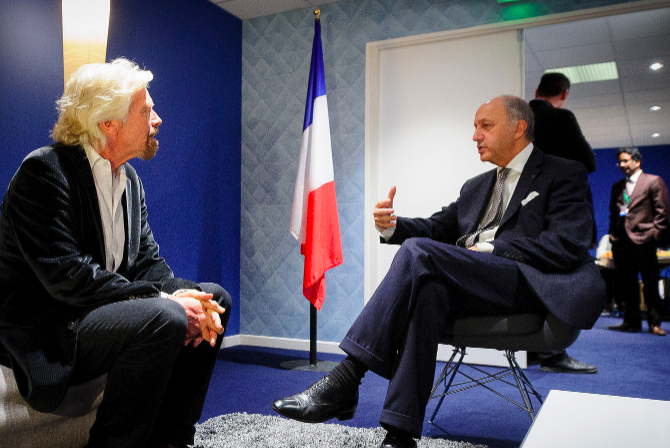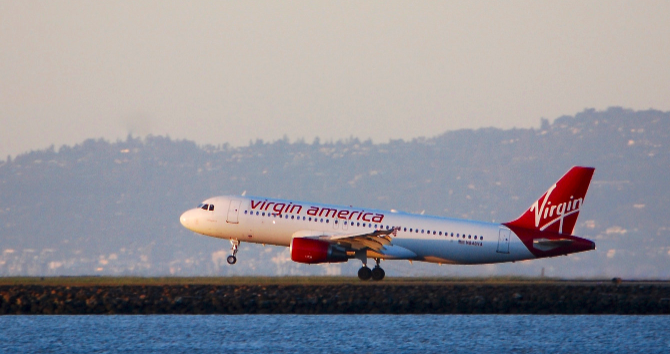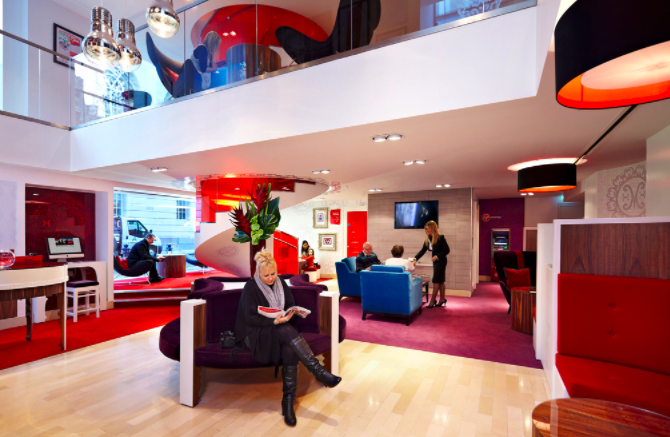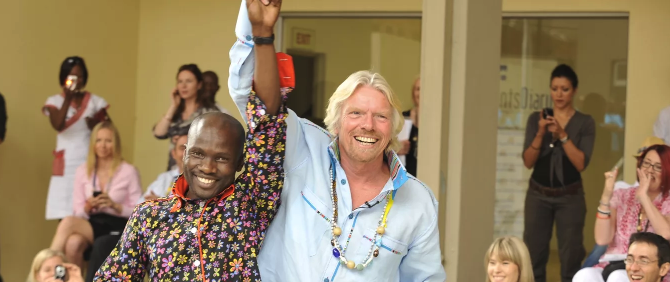At the age of 66, Sir Richard Branson has started over 500 different companies and amassed a $5 billion fortune.
When it comes to picturing a truly "successful" entrepreneur then, Branson is often the poster child. And luckily for us, he's not media shy either.
We've scoured many books, articles, and interviews with Branson, to bring you nine lessons that have contributed to the tycoon's success. These lessons form much of the foundational advice Branson gives to entrepreneurs who are just starting out, or looking to scale their ventures.
If you're on your own entrepreneurial journey, ignore these lessons at your own risk.
1. Don't Think About Your Age
In 1968 at the age of 16, Branson left school to begin his first venture, Student magazine. Hustling hard to sell advertising space, he certainly found his youth a challenge, but age was never a barrier to success. In fact, being the kind of person he was aiming his magazine at enabled him to create a publication that truly resonated with his audience.
But even during these later years, Branson refuses to see his age as a limit. Approaching 70, he's still living the active life, such as kite surfing around his home, Necker Island. And it wasn't long ago that we'd find the entrepreneur attempting death-defying hot-air ballooning expeditions.
2. Keep It Fun
In their book Bold: How to Go Big, Create Wealth and Impact the World, Peter Diamandis and Steven Kotler explain the importance of fun in Branson's approach to business:
Branson says to himself, "If I have fun doing this, I assume other people will have fun doing this", so fun has become a filter for "Should I go into it?"
Take a quick look at his life, and you can see Branson is enjoying himself almost every second, pursuing only projects that energize him. But this approach to fun extends to customers, too.
When Virgin opened its first record store in the 70s, the aim was to make the experience of shopping for records fun. So Branson created a store full of beanbags and free coffee. He wanted a chilled atmosphere, so people would love to spend time there. The industry thought this was a ludicrous idea. Before long, Virgin Records was one of the largest music sellers in the world.
3. Think Big
In an interview with Entrepreneur.com, Branson's assistant of 31 years says:
Richard was a master at being productive on only the things that pushed Virgin forward.
This careful approach to how he spends his time enabled Branson to focus on the big picture. Meanwhile, his employees were sweating the small stuff.
This freedom to think big is something Branson has always valued. In his book Losing My Virginity, he explains that "sometimes in life you've got to dream big by setting yourself seemingly impossible challenges".
It's this philosophy that saw Branson launch an airline with no relevant experience whatsoever. And it's also what has enabled the tycoon to be a pioneer in hugely daunting, long-term industries, such as renewable energy research Virgin Green Fund) and space travel (Virgin Galactic).
4. Hustle, Hustle, Hustle
As you read more about Branson's life, especially in his own books, you begin to get a sense of the relentless work that he puts in each day. After all, you don't get to be as successful as Sir Richard Branson without putting in the hours.
But to reiterate an earlier point, Branson isn't just busy by acting as the head of numerous companies and expeditions. He's also working smart. In an article published on The Star, he says, "The most valuable commodity anybody has is time". That's why Branson will often attend business meetings while most people are still eating breakfast. And it's why his ex-assistant remembers often working until 2 AM with Branson, meticulously planning his days and weeks, sometimes coming into work at 7 AM.
5. Don't Shy Away From Risks
Branson has never been one to wait patiently until all the stars are aligned before taking action. When he launched his magazine, he dived into journalism without ever taking a journalism class (even though he's dyslexic). Heck, he started 500 businesses without taking a single business class.
It's by throwing himself into the deep end, and believing in himself, that Branson has been able to make risk-taking work so well for him. In the past, he was forced to re-mortgage his house, and having to sell Virgin Records to keep Virgin Atlantic afloat has brought him to tears.
But without taking these calculated risks, Branson could never have been where he is today.
6. Protect the Downside
Speaking of calculated risks, one of Branson's most famous pieces of advice is to "protect the downsides". This essentially means to minimize any risks before opening yourself up to potential losses.
As explained in Bold, he put this advice into practice as a teenager by staying in school until he had secured £4,000 in advertising. And later, the only way to convince his partners to allow him to start Virgin Atlantic, was to get Boeing to agree to take back the first 747 jet if the business wasn't making enough money.
By always protecting the downsides, Branson has been able to shield himself, and his brand, from the worst case scenarios being faced.
7. Be a Disrupter
Before entering a new industry, Branson will always ask himself whether that industry needs disruption. If it does, he'll dive in, working relentlessly to offer something completely different to everyone else. This means ignoring the status quo, and even admitting that sometimes the customer is not always right. As a disrupter, you have to set the new benchmarks and set new standards in an industry.
Richard Branson told WEJ:
I've had great fun turning quite a lot of different industries on their head and making sure those industries will never be the same again.
Virgin Atlantic, which famously used the tagline "Flying in the Face of Ordinary", was launched to revitalize a stale aviation industry. Its customer service and in-flight options surpassed anything else on the market. And nobody could compete with the Virgin airport lounges.
When Virgin took over Northern Rock Bank in the UK, this was also an excuse to do something entirely different. Rather than just opening branches, Virgin opened "Virgin Money Lounges" (see above), which gave customers somewhere to grab a free coffee, connect to Wi-Fi, and have a rest in the middle of the city.
When Virgin ignored this lesson, however, things rarely went to plan. Take Virgin Cola, for instance. The cola industry was working just fine, and people were happy with the choice in that industry. Virgin had nothing new to offer, and was therefore never a success.
8. Embrace Failure
Out of the 500 or so businesses Branson has set up, 200 have been "failures". In fact, Branson believes that all entrepreneurs need to be comfortable with failure, as it's pretty much guaranteed when you're consistently challenging yourself. Just look at all of Apple's failures as one example.
Speaking with Forbes, Branson said:
We've never been 100 percent sure that any of the businesses we've started at Virgin were going to be successful ... But over 45 years, we've always stood by our motto: "Screw it, let's do it". While this attitude has helped us build hundreds of companies, it hasn't always resulted in success.
Each of those failures does, however, teach lessons that you can apply next time. The challenge is simply acknowledging that failure is a necessary part of the journey.
9. Always Help Others
Branson has been known as someone who helps others on both a small and large scale.
On a "smaller" scale, the Virgin brand works on the premise that happy employees lead to happy customers. Therefore, neither customers nor employees should ever feel like they are taken for granted.
In fact, Branson said:
I particularly encourage start-ups to make a commitment to making a positive change in the world.
On a larger scale, though, Branson believes that "the brands that will thrive in the coming years are the ones that have a purpose beyond profit". This has led to Branson becoming one of the most vocal humanitarians of the 21st Century.
Virgin's non-profit division, Virgin Unite has incubated a number of influential organizations. One of these is The Elders, "a group of independent global leaders working together for peace and human rights". Another is the Carbon War Room, an NGO working on economically sustainable solutions to climate change. And in 2013, Branson joined Bill Gates' $500 billion philanthropy group, pledging to donate half of his wealth to philanthropic causes.
It's not all selfless though, as there is a business lesson here. In Branson's book Screw Business as Usual, he argues that companies that treat their employees, customers, and the planet well, are the ones who are most likely to prosper. This is ushering us into a new period where businesses and larger purposes will start to meld together.
Putting All of This Into Practice
As with any article like this, the information here is only useful if people like you and I put it into practice.
When dishing out lessons like these, Richard Branson brings decades of experience and wisdom to the table. We would be wise to heed his advice.
From genuinely caring about your employees, to forcing yourself to think big, these are all valuable lessons that any entrepreneur should try to implement into their own ventures.
Are there any other lessons you've learned from reading up on, and watching videos about, Richard Branson?
Image Credits:Richard Branson by Hardo Müller via Flickr


